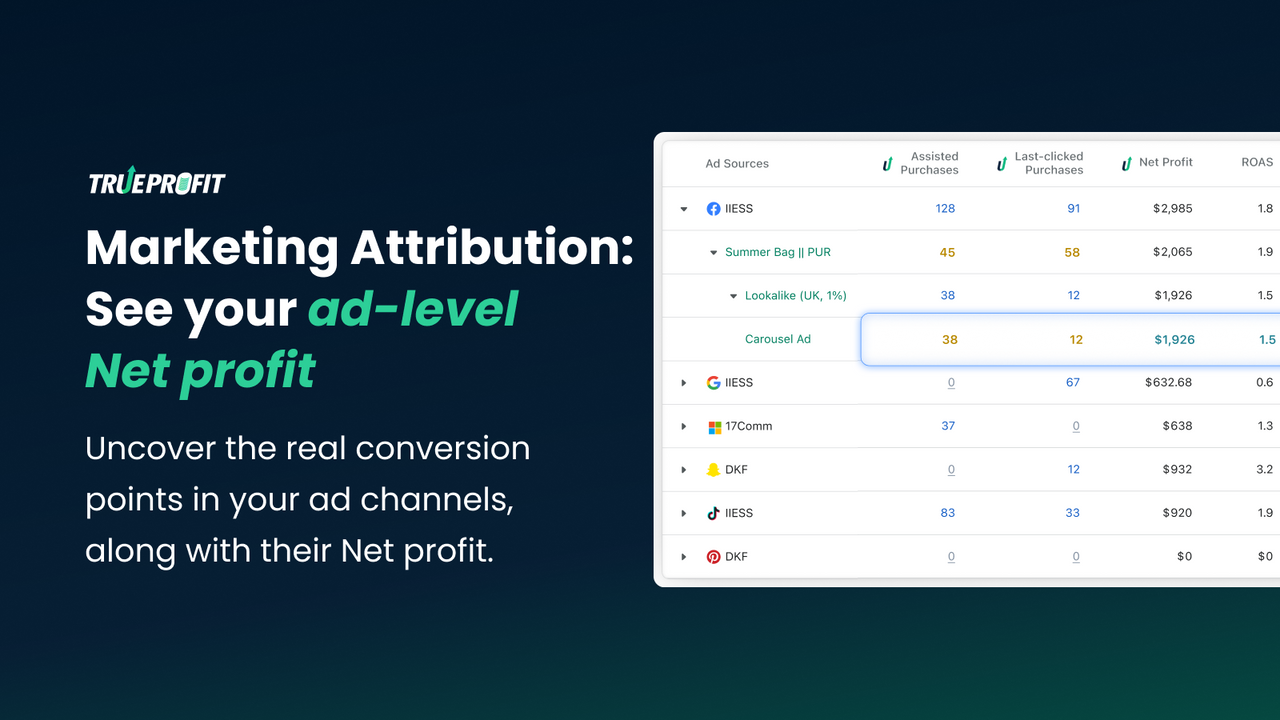Marketing channels are crucial for reaching customers and distributing products. They help businesses connect with their target audience and deliver goods efficiently.
Marketing channels play a vital role in a company’s success, as they determine how products reach customers and the experience they have with the brand. Understanding the importance of marketing channels can help businesses make informed decisions about how to best promote and distribute their products.
We will explore the significance of marketing channels, different types of channels, and how businesses can effectively utilize them to maximize their reach and impact. By highlighting the true significance of marketing channels, businesses can develop strategies that align with their goals and strengthen their overall marketing efforts.

Credit: www.chegg.com
The Importance Of Marketing Channels
Marketing channels play a crucial role in the success of any business. They provide businesses with access to a wider customer base, facilitate product distribution, and enhance customer convenience. Let’s explore each of these aspects in detail.
Access To Wider Customer Base
Marketing channels offer businesses the opportunity to reach a larger audience. By utilizing different channels such as online platforms, social media, and traditional advertising methods, companies can connect with potential customers who may not have otherwise been aware of their products or services. This wider reach increases the chances of attracting new customers and expanding the customer base.
Facilitate Product Distribution
Marketing channels ensure that products are readily available to consumers through various distribution methods. These channels help businesses establish relationships with distributors, retailers, and wholesalers, making it easier to get products into the hands of customers efficiently. Whether it’s through direct sales or partnerships with other businesses, effective marketing channels streamline the distribution process, ensuring products are accessible in multiple locations.
Enhance Customer Convenience
Marketing channels make it convenient for customers to access and purchase products. Whether through e-commerce platforms, brick-and-mortar stores, or other distribution methods, customers have multiple options to choose from based on their preferences and convenience. This accessibility not only improves customer satisfaction but also increases the likelihood of repeat purchases and positive word-of-mouth recommendations.
In conclusion, marketing channels provide businesses with a myriad of benefits. They enable access to a wider customer base, facilitate efficient product distribution, and enhance customer convenience. By effectively utilizing these channels, businesses can maximize their reach and increase their chances of success in the competitive marketplace.
Different Types Of Marketing Channels
Marketing channels are crucial for reaching and connecting with customers. There are different types of marketing channels that businesses can utilize to promote their products or services. Understanding these channels can help businesses develop effective marketing strategies to reach their target audience.
Direct Marketing Channels
Direct marketing channels involve a direct interaction between the company and the consumer. This can include personal selling, direct mail, telemarketing, and online sales. These channels allow businesses to have direct control over the marketing message and the ability to personalize interactions with customers.
Indirect Marketing Channels
Indirect marketing channels involve intermediaries or middlemen such as wholesalers, retailers, and agents. These channels enable products to reach a wider audience as intermediaries can help with distribution and provide access to different markets. However, businesses may have less control over the marketing message and customer interactions.
Benefits And Drawbacks Of Direct Marketing Channels
Direct marketing channels allow businesses to interact directly with customers, fostering personal relationships.
These channels enable proactive engagement and tailored messaging, enhancing customer satisfaction and loyalty.
Brands can maintain consistent messaging and image across direct marketing channels.
This leads to stronger brand recognition and trust among customers.
Direct marketing channels often entail higher costs for operations and inventory management.
Managing inventory levels becomes critical to avoid overstock or stockouts.

Credit: rockcontent.com
Benefits And Drawbacks Of Indirect Marketing Channels
When it comes to marketing, businesses have the option to utilize both direct and indirect marketing channels. Each channel comes with its own set of benefits and drawbacks. In this section, we will explore the advantages and disadvantages of utilizing indirect marketing channels for your business.
Access To Established Distribution Networks
Indirect marketing channels provide businesses with access to established distribution networks, allowing them to reach a wider audience and expand their market reach. By leveraging the distribution network of intermediaries such as wholesalers and retailers, businesses can tap into new markets and increase their brand visibility.
Lower Costs And Inventory Management
Utilizing indirect marketing channels can lead to lower operational costs for businesses, as they can leverage the infrastructure and resources of intermediaries for warehousing, logistics, and inventory management. This can result in cost savings and improved efficiency in managing inventory levels and order fulfillment.
Less Direct Customer Interaction
One drawback of indirect marketing channels is the reduced level of direct customer interaction. Businesses may have less control over the customer experience and brand messaging as the intermediaries become the primary point of contact for customers. This can lead to challenges in maintaining brand consistency and addressing customer concerns effectively.
Factors To Consider When Choosing Marketing Channels
Choosing marketing channels requires consideration of target audience, budget, and message compatibility. Analyzing metrics and testing strategies helps determine effectiveness and optimize performance. Each channel has unique advantages, so understanding goals and aligning with customer behavior is essential.
Choosing the right marketing channels is crucial for the success of any business. By understanding the factors to consider when making this decision, you can ensure that your marketing efforts are effective and efficient. Here are the key factors to keep in mind when choosing marketing channels:
Target Market And Customer Preferences
Your target market plays a significant role in determining the marketing channels you should focus on. Analyzing their demographics, behaviors, and preferences will help you identify the most effective channels to reach and engage them. Consider factors such as age, location, gender, and online behavior. By understanding your target market, you can allocate your marketing budget to the channels that will deliver the best results.
Product Nature And Complexity
The nature and complexity of your product or service can influence the choice of marketing channels. If you have a physical product, traditional marketing channels such as retail stores, print ads, and direct mail might be suitable. On the other hand, if you offer a digital product or software, online marketing channels such as social media, search engine optimization (SEO), and content marketing may be more effective. Determine the nature of your product and choose channels that align with its characteristics.
Competitor Analysis
Analyzing your competitors’ marketing strategies is vital in determining the channels you should focus on. Identify the channels they use and assess their effectiveness. Considerations include the reach and engagement levels they achieve through various marketing channels. By conducting a competitor analysis, you can gain valuable insights into successful marketing techniques and adapt them to your own marketing strategy.
Utilizing Multiple Marketing Channels
Marketing channels play a crucial role in reaching diverse audiences. Leveraging multiple channels can enhance brand visibility and engagement. Consistent optimization across various platforms can lead to increased customer acquisition and retention.
Omnichannel Approach
Utilizing multiple marketing channels is crucial for any business seeking to reach a wider audience and maximize its marketing efforts. An important aspect of this strategy is adopting an omnichannel approach, which involves integrating various channels to create a seamless and unified customer experience. By embracing an omnichannel approach, businesses can ensure that their marketing message is consistent across different channels, such as social media, email marketing, search engine optimization (SEO), content marketing, and more. This cohesive messaging offers customers a seamless transition from one channel to another, resulting in a more engaging and cohesive brand experience.Creating Synergy Across Channels
To effectively utilize multiple marketing channels, it’s essential to create synergy across all these channels. This means aligning the messaging, branding, and objectives across different platforms, ensuring that they complement and reinforce each other. One way to achieve synergy is through consistent branding. By utilizing the same brand elements, such as logos, colors, and tone of voice, across all channels, businesses can create a strong and recognizable brand identity. This consistency helps customers recognize and trust the brand, regardless of the platform they interact with. In addition to branding, content strategy plays a crucial role in creating synergy. Businesses must develop a content strategy that considers the unique needs of each marketing channel while maintaining a cohesive overarching message. By tailoring content to suit the specific characteristics of each channel, businesses can ensure that their message resonates with the target audience and sparks engagement.Measuring And Adjusting Strategies
Measuring the effectiveness of marketing strategies across multiple channels is essential to maximize ROI and make data-driven decisions. By utilizing various metrics and analytics tools, businesses can gather valuable insights into the performance of each marketing channel and identify areas for improvement. Regularly monitoring key performance indicators (KPIs) such as click-through rates, conversion rates, and engagement metrics allows businesses to measure the success of their marketing efforts on each channel. This data helps identify which channels are performing well and which ones may require adjustments or further investment. With this information, businesses can adjust their strategies accordingly. They can allocate more resources to channels that yield significant results while identifying and addressing any weaknesses in underperforming channels. This iterative process of measurement and adjustment ensures marketing efforts are continuously optimized and aligned with business objectives. In conclusion, utilizing multiple marketing channels and adopting an omnichannel approach is a vital component of any comprehensive marketing strategy. By creating synergy across channels, businesses can deliver a consistent brand message, resonate with their target audience, and ultimately drive better results. Furthermore, measuring and adjusting strategies based on data insights allows businesses to maximize their marketing efforts and stay ahead in an ever-evolving digital landscape.
Credit: apps.shopify.com
Frequently Asked Questions
What Is A Marketing Channel Quizlet?
A Marketing channel on Quizlet is a way to reach and engage with your target audience. It can include social media, email, and other platforms. Quizlet offers various channels to promote products and services to potential customers.
What Are The Channels Of Marketing?
The channels of marketing include advertising, public relations, direct marketing, sales promotion, and personal selling. They help businesses reach their target audience through various media and communication strategies.
What Best Describes The Marketing Channel?
A marketing channel is a pathway used to reach and communicate with customers to promote and sell products or services. It includes various methods such as advertising, digital platforms, social media, direct mail, and public relations. These channels help businesses effectively market to their target audience.
What Is The Purpose Of Marketing Channels Is To Create ________?
The purpose of marketing channels is to create brand awareness and reach target audiences effectively.
What Are The Main Types Of Marketing Channels?
Marketing channels include direct, indirect, online, offline, and multichannel approaches to reach consumers effectively.
Conclusion
Understanding the different marketing channels is essential for successful campaigns. By assessing your audience and business goals, you can select the most effective channels. Flexibility and adaptation are crucial to accommodate evolving consumer behaviors and preferences. Ultimately, a diverse and integrated approach optimizes your reach and engagement across various platforms.











